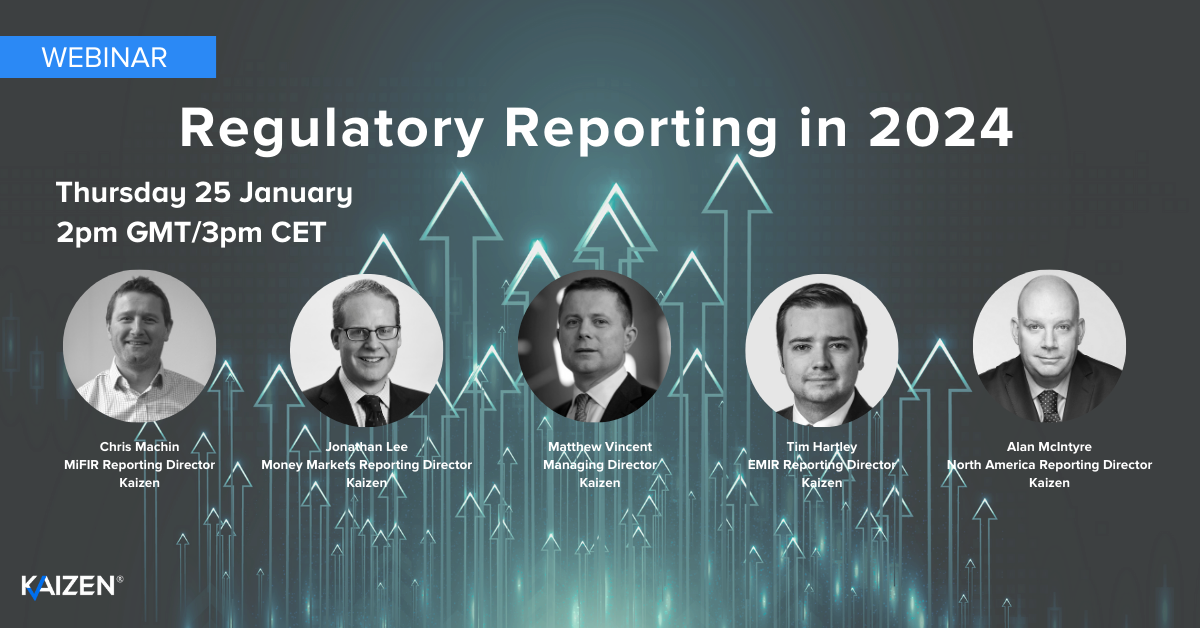The clock ticks for SEC Rule 10c-1/OFR Sec Lending and Uncleared Bilateral Repo Reporting

SEC Securities Lending Reporting and OFR Uncleared Bilateral Repo Reporting cannot come too soon. US regulators face renewed pressure from all sides.
Not to put too fine a point on it, US regulators find themselves lagging their international peers when it comes to securities financing transactions (SFT) regulation. US SFT regulation stands accused of being too light touch, fragmented and incomplete. In an environment of heightened inflation, rapidly rising interest rates, deteriorating credit conditions and where solvency concerns abound, this is undoubtedly making US authorities rather uncomfortable and eager to close out the gaps as a matter of priority.
The US has a key role to play in identifying global and domestic SFT market systemic risk and in forewarning and tackling market crises. In the recent past, SFTs have certainly played a role in market failures such as the Gamestop short squeeze, UK pension LDI solvency crisis, and the collapses of Silicon Valley Bank and Credit Suisse banks.
Gaps in reporting mean US regulators cannot get a firm handle on market events and are letting down their international partners in identifying and quantifying global systemic issues.
Following the last financial crisis, SEC and Federal Reserve Board representatives played a very active role in the early discussions held by the newly formed Financial Stability Board (FSB) between 2012-2015. This culminated in the publication of “Standards and processes for collecting and aggregating global data on SFTs”. Subsequently, with the exception of the Office of Financial Research Centrally Cleared Repo Data Collection (beginning late 2019) taken directly from the DTCC and tri-party repo data that the Fed has supervisory authority over, it all went rather quiet in the US.
The two major gaps in US SFT reporting are the securities lending market and the uncleared, bilateral repo market – currently operating in almost complete darkness. Steps are underway by both the SEC and Office of Financial Research (US Federal Reserve Board) respectively to bridge the gaps in these two unreported segments. In market conversation, at this juncture, we anticipate little resistance from either the securities lending nor repo industries in pushing ahead with these new reporting regimes.
SEC 10c-1 Securities Lending Reporting has already been subject to extended delays.
Thus far, consultations have dragged on significantly longer than first anticipated, especially in relation to SEC 10c-1 Securities Lending Reporting, in which the final rules were initially expected at the beginning of 2022. The need to significantly extend the consultation period and subsequent rule making perhaps demonstrate both the overly ambitious reporting time lines (initially proposed to be within 15 minutes of a securities loan being agreed) and transparency publication objectives, together with the competing interests of Wall Street (agent lenders), institutional investors (beneficial owners) and retail investors (craving a level playing field).
OFR uncleared bilateral repo reporting is certainly more fully formed, following a successful pilot reporting exercise conducted with nine dealers over three days in June 2022. The scope of uncleared bilateral repo reporting is also much narrower, focused only on the largest collateral givers (with daily outstanding loans of $10 billion+). Therefore, it is also quite likely that OFR bilateral repo reporting goes live over a similar timeline to the SEC Securities Lending Reporting, quite possibly during 2024.
Both regulators and the man on the street are losing patience. Retail investors in particular have been highly vocal in demanding greater transparency and fairness in equity markets.
Regarding uncleared bilateral repo reporting, the Federal Register stated that is was,“a critical blind spot in a market that plays a key role in financial stability.”
Regarding the SEC consultation on securities lending reporting, it has solicited close to 2000 responses, the vast majority of which have come from angered, frustrated retail investors, annoyed at the slow pace of regulatory change, the inability to address market failure, and craving far greater stock lending transparency. Retail investors have come out overwhelming in support of SEC 10c-1 Securities Lending Reporting in its current form as a bare minimum.
Here are some quotes from the consultation responses:
“I support these rule changes, the truth needs to come out.”
“Please for the love of America. Please stop shorting/naked shorting only to benefit Hedge Funds and the loss of the retail investor. Only allow 100% of the float to be obtained. The technology is available Please invest in a program to be able to see illegal shorting and spoofing. Lastly please FINE more then they made off their illegal tactics. As a member in the US Air Force I do my job no matter what the cost and get paid peanuts. Please do yours make it a fair market.”
With extensive experience in helping firms comply with securities financing and money market reporting regimes, Kaizen Reporting can assist in putting together controls and quality assurance around impending securities lending and bilateral uncleared repo reporting. Please get in touch to kick off a conversation to get ahead and comply with impending regulation.


